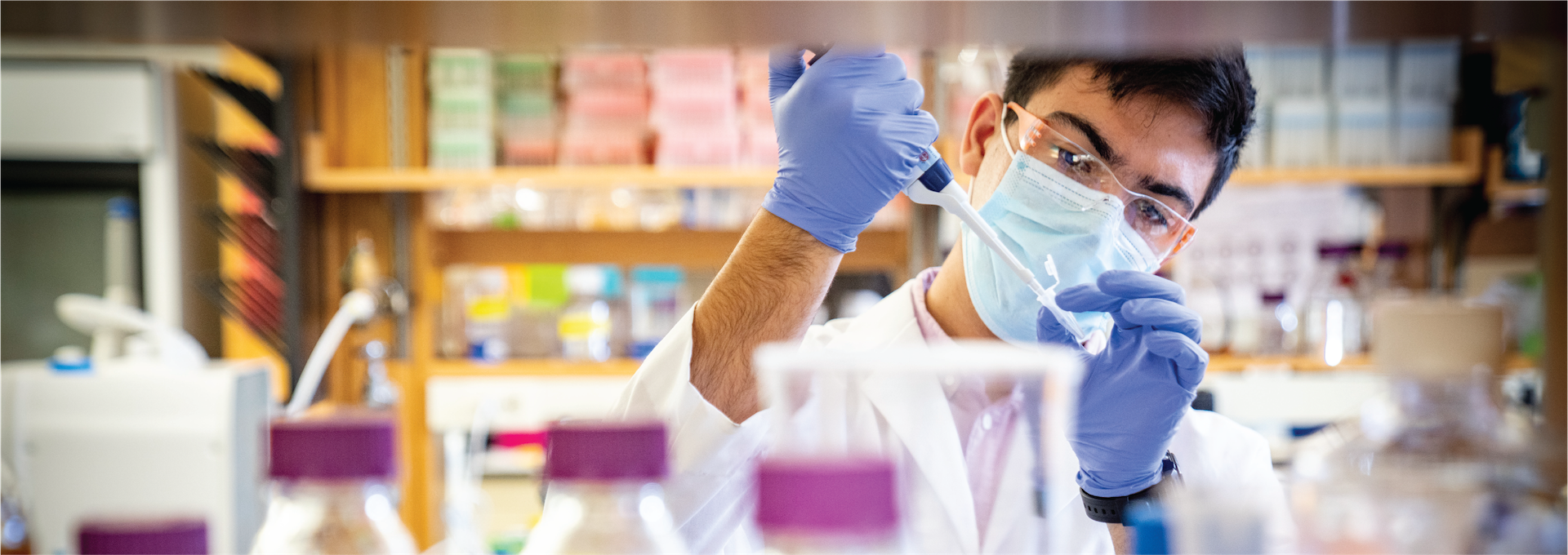Degree Requirements
Requirements Biological Sciences Ph.D. Summary
- Coursework Requirements: because the breadth of interests within the Program in Biological Sciences is diverse, our program is highly flexible. The Ph.D. degree requires 72 hours of credit for graduation, including the completion of 24 credits of didactic courses, with the specific courses taken determined by the student in consultation with their advisor and the Director of Graduate Studies.
- Professional Development: students participate in a series of professional development activities, including the yearly construction and discussion of an individual development plan.
- Qualifying Examination: the qualifying exam is taken in the third year of graduate training after the completion of didactic courses. The qualifying exam is comprised of written and oral components and is designed to assess the student’s knowledge as well as evaluate the student’s ability to formulate hypotheses and design experiments to test those hypotheses. The qualifying exam also provides constructive feedback on the student’s thesis project. Under extenuating circumstances, the DGS may approve delaying the qualifying exam until the fourth year of graduate training.
- Annual Committee Meetings: following successful passage of the qualifying exam, students participate in annual or biannual meetings with their Ph.D. committee. These meetings are designed to enhance each student’s growth in research and the profession.
- Dissertation: a Ph.D. in Biological Sciences is completed after the successful written and oral defense of a thesis that details the student’s research accomplishments and how these novel findings advance their field of research.
- Timeline: the Ph.D. in Biological Sciences is designed to be completed within five to six years, but actual completion time varies.
Requirements for the Ph.D. in Biological Sciences
Student Handbook
Current Biological Sciences Ph.D. Students
For more detailed information and supporting materials current Biological Sciences Ph.D. can visit the Resources for Graduate Students page.
